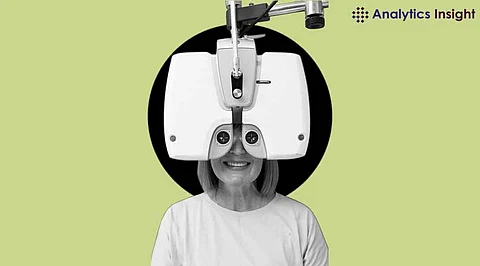

A medical landmark in innovative technology where AI-assisted surgery restored a 31-year-old UK woman. Patrícia Gonçalves, a Portuguese national who was legally blind due to extreme astigmatism and near-sightedness, can now see better than 20/20.
Ms. Gonçalves’ treatment occurred at Focus Clinics in London. The first-of-its-kind surgery was done using a customised treatment plan designed based on a digital model of her eye.
Ms. Gonçalves had been using glasses for years for even basic sight. She could only read the largest of letters on the eye chart., without corrective lenses. After receiving LASIK assisted by AI, her vision is at 20/16, stronger than the average 20/20.
The treatment, lasting about an hour, commenced with a 10-minute scanning process. From this scan, an Eyevatar detailed model was produced. Thus, creating the optimal laser modifications of the digital representation of Gonçalves' eyes. The AI could then determine which laser treatments would most successfully correct Ms. Gonçalves’ vision.
The customised procedure allowed the reconstruction of her cornea with unparalleled precision, significantly improving her sight. During the treatment, senior eye surgeon David Allamby noted that it had provided her vision with far more clarity than she had ever experienced in her life.
This AI-driven procedure breaks the 20/20 vision standard in the eyesight restoration procedure. Clinical studies conducted on 200 patients show that results have indicated that all patients have improved. One in twelve patients reached the astonishing mark of 20/10, almost twice as sharp as the standard 20/20.
The AI eye surgery may be conducted in other nations, such as China and Australia soon. The AI capacity to refine the ‘Point Spread Function’, a measure of vision distortion is revolutionising for patients with severe vision disorders.
Such advancements in AI-powered surgeries may unlock more precise, individualised, and more potent corrections of vision-related problems. Thus, particularly benefitting the patients who have rare and complex eye diseases.
The success of this AI-assisted eye surgery shows the power of using AI in healthcare.
